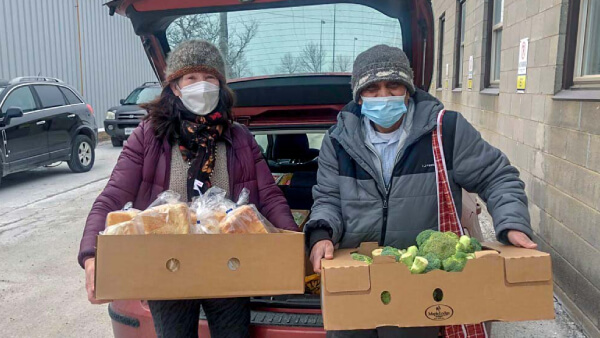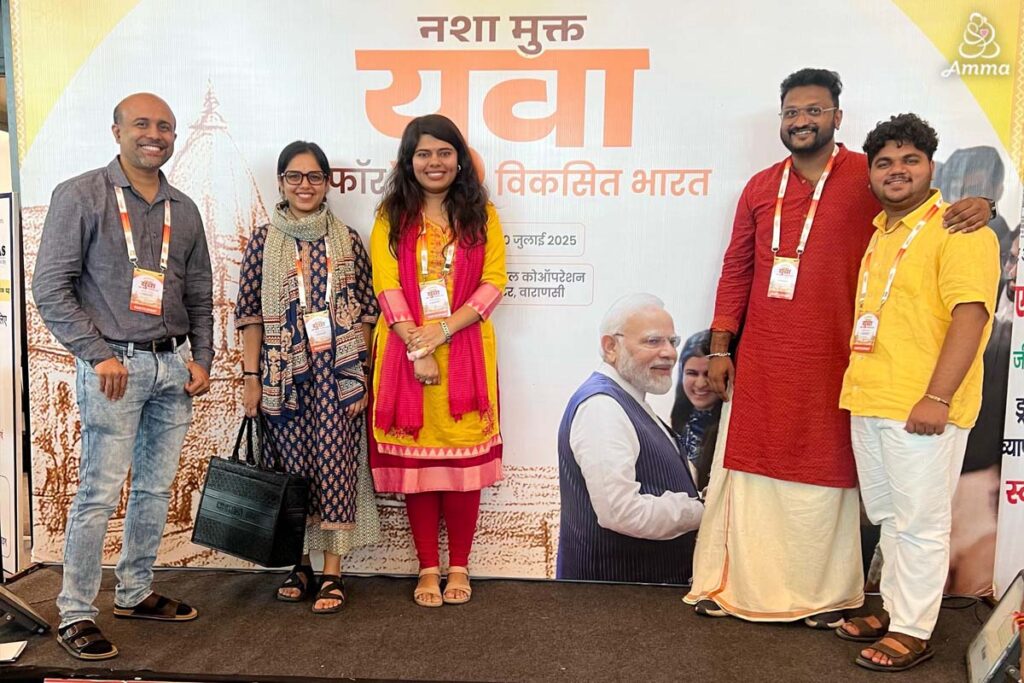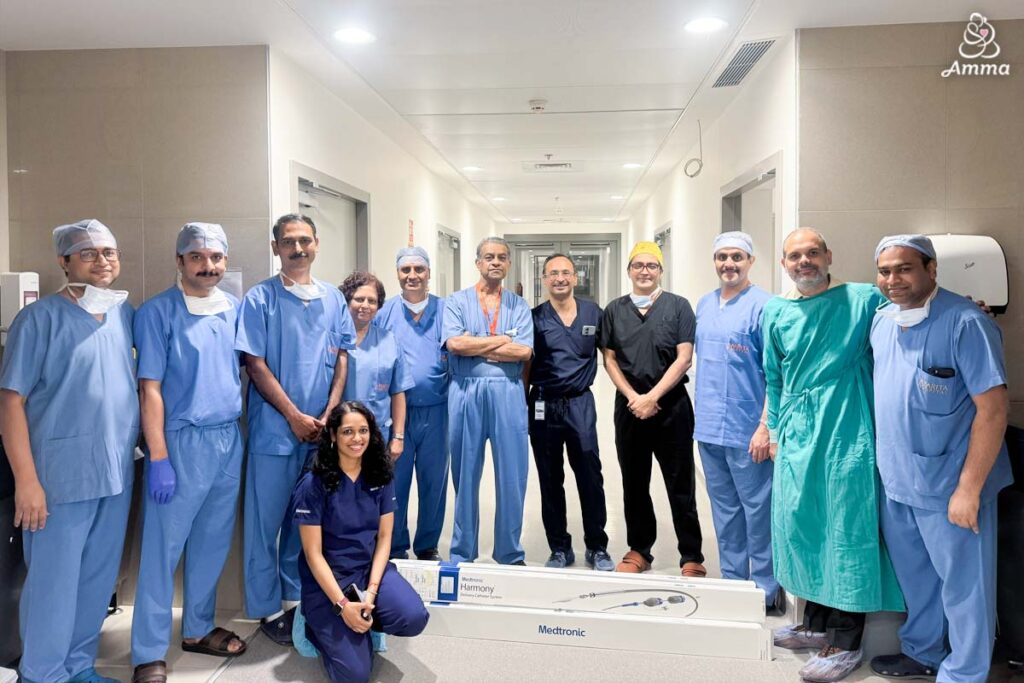Food rescue is still a relatively new concept in the environmental movement. It is the practice of collecting extra food from places like grocery stores and restaurants and distributing it to local emergency food programs to reach people in need. The food is edible but has passed its sell-by date, as is the case with day-old bread, or is imperfect in some small way, such as a bruised apple.
Amma Canada is Embracing the World’s Canada-based associated nonprofit organization. Volunteers in Toronto began their food rescue project in 2017. Interestingly in this case, it started with a local food bank in a suburb where they volunteered twice a month to serve lunch. The Georgetown Bread Basket cares for low-income families and had to throw away food with expired best-before dates.
Seeing this, one of the volunteers got the idea to instead deliver that food to a shelter for the homeless in downtown Toronto. St Felix Centre is another organization with which Amma Canada partners, and the needs of people in poverty are much more severe in the city.
“It was a win-win; the donated non-perishables were welcomed at the St Felix Kitchen and it diverted food from landfills,” says Theresa Traynor, Toronto’s coordinator for charitable activities.
“With permission from Georgetown Bread Basket, we began collecting their excess non-perishable food and stored it at the Amma Canada Centre until St Felix staff could collect it. We estimate over 6000 lbs of usable food was rescued to redistribute to the St Felix meal program in 2017.”
The food rescue project continued to evolve as Traynor contacted more food sellers and food banks across the Greater Toronto Area (GTA) to establish distribution chains. The items began to include frozen foods, pasta, artisan bread, produce, dairy, snack foods, and canned goods. The sellers saved on time and cost, as they did not have to haul goods to landfills.
“The scale of usable food that is wasted with just one retailer can be huge,” Traynor says. “Perishable food like dairy and bread are only good so long and some food, like eggs, cannot be frozen.”
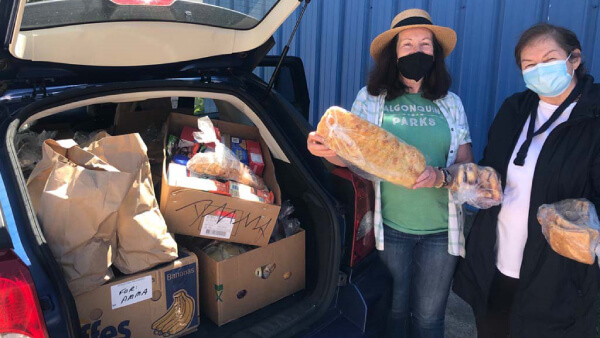
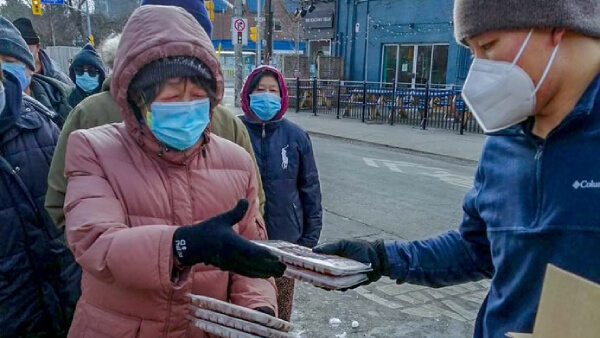
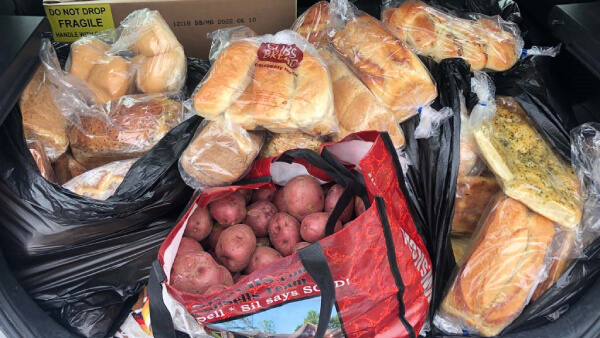
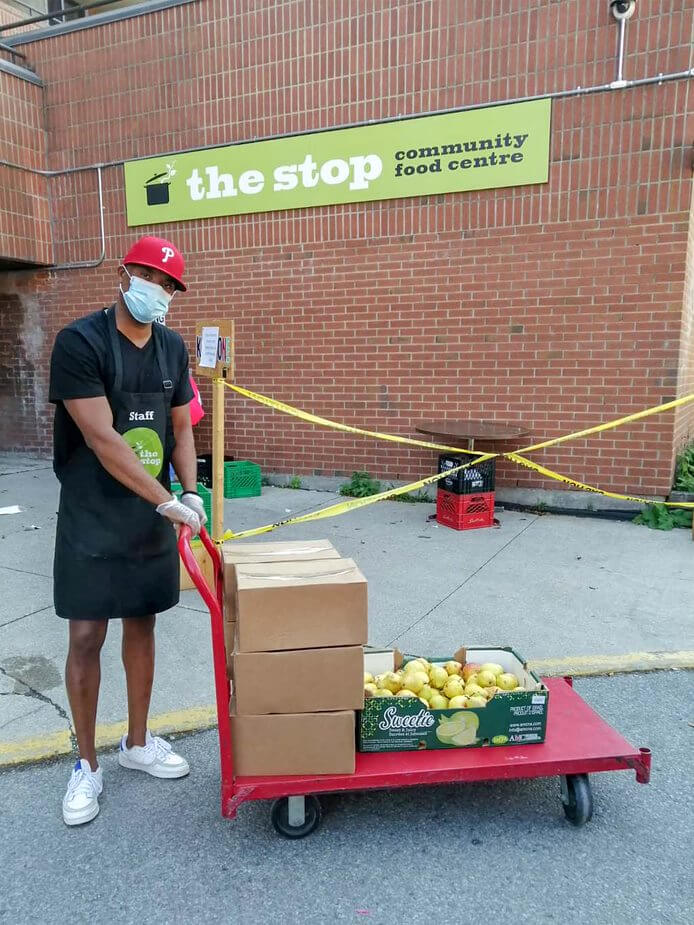
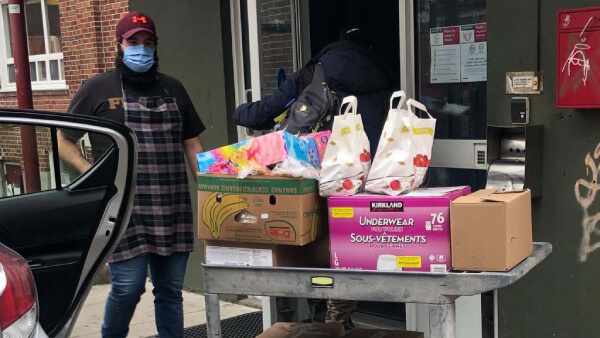
In 2020 when the economic impact of COVID-19 began to take its toll, the need for food rose greatly as unemployment increased. Statistics Canada, a government body, estimated one in eight Canadian families experienced food insecurity during the pandemic.
By following all safety precautions, Amma Canada volunteers were able to increase pickups and deliveries. For example, Flemingdon Food Bank is in a Toronto neighborhood with a high immigrant population and high poverty rate. One of their volunteers told Traynor they went from serving 150 families to more than 500.
“In spring 2021, I received a referral to collect bread and pastries from the Georgetown Walmart. The first visit, I rented an SUV and waited near the truck delivery zone. Out came a skid containing 20 to 25 boxes full of bread, pastries, and sweets. Yikes!
“It was a bit overwhelming, but their staff helped juggle all the boxes into the car perfectly. The Daily Bread Food Bank, a large distribution center for all Toronto food banks, gladly accepted the donations,” says Traynor.
For the year 2021, Amma Canada rescued 10,000 lbs of food. Volunteers started to connect with smaller food programs across the GTA, crossing a distance of more than 70 miles. Amma Canada became the middle person to connect about a dozen food sellers, food banks, and daily meal programs.
Each recipient location had different needs, so some could only accept bread and produce, while others took anything delivered. The availability of supply was also unpredictable. Sometimes, the volunteers would receive five large bags full of bread from a bakery, and the next week, none from the same place.
Elora Denis is another volunteer with the Amma Canada food rescue project. She is First Nations and born to the Kitigan Zibi Reserve. Poverty was an experience of her life from childhood, so as an adult, she made it her mission to volunteer in food banks and serve hot meals to those in need.
“Whenever I could get a day off from work it was spent sorting out food at food banks. Even though I’m retired now, I still do this today,” she says.
“For example this past winter, many downtown Toronto food banks experienced a shortage. As I pulled up to the curb in front of one of them, people lined the streets braving the cold for food. We didn’t even have time to get the food into the food bank, as people were there with outreached hands.
“If Amma Canada had not rescued all that food, it would have not reached those 900 families, and it would have ended up in a landfill creating more pollution and waste.”
Denis envisions creating a phone app that would allow food banks to exchange information with each other and include communication with food distributors to share their surpluses. It could also exchange logistics and make delivery more efficient. Ultimately, the goal is zero food waste.
She says witnessing the food rescue project is a tremendous inspiration for the Amma Canada volunteers. Food is not a mystery nor is it a luxury; it’s a basic necessity. Education is key to reducing mass overproduction of food and getting reconnected to it, reconnected to source, reconnected to life—especially since on a global basis, some countries waste while others are in dire need.


